【開催案内】Cultures of youth mental health in East Asia, North America, and the UK(2025年1月23日~25日)
■Co-sponsored by:
 PROVOST’S GLOBAL FACULTY AWARDS
PROVOST’S GLOBAL FACULTY AWARDS
![]()
![]()

![]()


The workshop is also funded by Kakenhi JP21H05174.
■Venue
![]()
Address: 168 Victoria Road, Mount Davis, Hong Kong (Map)
Bus: 1, 971, 43M, A10; Mini Bus: 54, 58, 58A, 58M, 59; Phone: 852-2533-9400
■Program
Day 1 – January 23 (Thursday)
12:30 pm – 1:30 pm Gather over informal lunch
1:30 pm – 1:40 pm Opening Remarks Eugene Raikhel and Junko Kitanaka, Cultures of youth mental health
1:40 pm- 2:00 pm Flash Introductions by Everyone
2:00 pm – 2:30 pm Eugene Raikhel, The University of Chicago, Youth, social media and the transformation of mental health
2:30 pm – 3:00 pm Eileen Anderson, Case Western Reserve University, TBD
3:00 pm -3:30 pm Felicity Callard, University of Glasgow, Configurations of student mental health and crisis at British universities
3:30 pm – 4:00 pm Sherry Kit Wa Chan, Department of Psychiatry, The University of Hong Kong, A glance of University Student Mental Wellbeing
4:00 pm – 4:15 pm break
4:15 pm – 4:45 pm Philip J. Rosenbaum, Haverford College, What’s Going on Around Here?”: Applying a Developmental Perspective to the Mental Health Crisis in Higher Education
5:00 pm – 5:30 pm Reflections on Day 1
5:30 pm Depart UC campus to JEN Hotel
7:30 pm Dinner at Sheung Hei
Day 2 – January 24 (Friday)
10:00 am Depart JEN Hotel to UC campus
10:30 am – 11:00 am Amir Hampel, New York University Shanghai, Confidence, Self-Presentation, and Social Class in Lifestyle Manuals for Chinese Youth
11:00 am – 11:30 am Hsuan-Ying Huang, National Yang Ming Chiao Tung University, The Psychic Life of Reading: Probing the Perils of Emerging Adulthood on a Chinese Digital Platform
11:30 am -12:00 pm Jung Eun Kwon, University of Pittsburgh, Continuous Traps of Patriarchy and Normativity: Young Women and Suicide in South Korea
12:00 pm –1:15 pm Lunch
1:15 pm – 2:00 pm Keynote Lecture: Meeta Kumar, The University of Chicago, Evolving paradigms of care: navigating challenges and crafting solutions for student mental health in a changing world
2:00 pm – 2:10 pm break
2:10 pm –2:40 pm Stefan Ecks, The University of Edinburgh, Why youth mental health seems to be getting worse in the UK
2:40 pm- 3:10 pm Gracie Wilson, The University of Chicago, Promoting College Mental Health: Experience and (In)Expertise in Peer Health Education
3:10 pm – 3:40 pm Suguru Hasuzawa, Kyushu University, Career Education as a Mental Health Risk Among Japanese University Students
3:40 pm – 4:10 pm Neely Myers, Southern Methodist University, Youth Mental Health Crises in the US and/or East Africa
4:10pm – 4:20pm break
4:20 pm – 4: 50 Teresa Kuan, Chinese University of Hong Kong, Filial Piety Goes to the Clinic
4:50 pm – 5:20 Yuto Kano, Keio University, Diagnosing Autism in Japan
5:20pm – 5:50pm Reflections on Day 2
6:00 pm Depart UC Campus to JEN Hotel
Group dinner
Day 3 – January 25 (Saturday)
9:30 am Depart JEN Hotel to UC Campus
10:00 am – 10:30 am Dominique Behague, Vanderbilt University, Beyond ‘Progress’: Youth Mental Health and the Politics of Development in Southern Brazil
10:30 am – 11:00 am Junko Kitanaka, Keio University, Legalizing the Clinical Space: The Rise of Reasonable Accommodation in Japan
11:00 am – 12:00 am – break up in thematic sections for discussion?
12:00 am – 12:30 pm Reflections on Day 3
12:30 Depart UC Campus to JEN Hotel
■Organizers
Eugene Raikhel, The University of Chicago 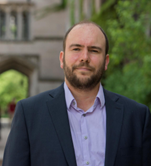
Eugene Raikhel is an Associate Professor in the Department of Comparative Human Development at the University of Chicago, as well as Faculty Chair of the Minor in Health and Society program. He is a cultural and medical anthropologist with interests encompassing the anthropology of science, biomedicine and psychiatry; addiction and its treatment; youth mental health; and post-socialist transformations in Eurasia. He is particularly concerned with the circulation of new forms of knowledge and clinical intervention produced by biomedicine, neuroscience and psychiatry. His book Governing Habits: Treating Alcoholism in the Post-Soviet Clinic was published by Cornell University Press in 2016. His current research examines mental health in higher education. Between 2008 and 2023 he was Editor of the medical anthropology website, Somatosphere.(More details: https://humdev.uchicago.edu/directory/Eugene-Raikhel)
 Junko Kitanaka, Keio University
Junko Kitanaka, Keio University
Junko Kitanaka is a professor of medical anthropology in the Department of Human Sciences at Keio University in Tokyo, Japan. Her book Depression in Japan: Psychiatric Cures for a Society in Distress (2012, Princeton UP) has won five awards including the American Anthropological Association’s Francis Hsu Prize in 2013. The book has been translated into French, Japanese, Persian and Korean (and parts of it in Chinese). She has been featured in global media including New York Times, The New Yorker, and BBC, CNN, and Danish, German, and French national TV. She is a member of Japan’s Science Council and has served on numerous journal editorial boards including BioSocieties, Cultural Anthropology, Medical Anthropology Quarterly, and Transcultural Psychiatry. She is currently working on a book about neuropsychiatry and dementia in Japan.(More details: https://researchmap.jp/read0121444?lang=en)
■Speakers *In Alphabetical Order
 Eileen Anderson, Case Western Reserve University
Eileen Anderson, Case Western Reserve University
Associate Professor Eileen Anderson directs the university’s educational programs in Bioethics and Medical Humanities. She is founding director of the Medicine, Society and Culture (MSC) concentration and center for Medicine, Society and Culture. As a medical and psychological anthropologist, she studies how adolescents and young adults adapt to changes in their environments in ways that both advance and harm their well-being. Building on her earlier work in culture, body image and eating disorders, she led a multi-institutional project examining the ethnography of global obesity stigma among upwardly mobile young people in several countries around the world. This research led to a School for Advanced Research seminar, from which emerged an edited volume (2017) of which she is primary editor and author, Fat Planet: Culture, Obesity and Symbolic Body Capital. Most recently, she has launched a new project examining concepts and practices related to child well-being in the Guardian Ad Litem system in legal contexts, where she leads an interdisciplinary team of child psychologists, pediatricians, ethicists, anthropologists, social workers and legal scholars.(More details: https://case.edu/medicine/bioethics/about/faculty-staff/eileen-anderson)
 Dominique P. Béhague, King’s College London
Dominique P. Béhague, King’s College London
Dominique P. Béhague is a social anthropologist and critical health scholar. She is Associate Professor at the Department of Medicine, Health, and Society at Vanderbilt University, and Reader at the Department of Global Health & Social Medicine at King’s College London. With funding from US National Science Foundation, the Fulbright Foundation, and the Wellcome Trust, among others, her long-term research in Brazil explores the intersection of psychiatric reform, social movements, and the emergence of “adolescence” as an object of psycho-developmental expertise.
 Felicity Callard, University of Glasgow
Felicity Callard, University of Glasgow
Felicity Callard is Professor of Human Geography at University of Glasgow and Editor of History of the Human Sciences. Her research addresses twentieth- and twenty-first century psychology, psychiatry, psychoanalysis and cognitive neuroscience, and she has a long-standing interest in interdisciplinarity as epistemic object and method. She is currently working on two projects: one on the transformation of universities and those who work in British universities since 2018, and one on the history of daydreams and fantasy in the human sciences.
 Sherry Kit Wa Chan, The University of Hong Kong
Sherry Kit Wa Chan, The University of Hong Kong
I am currently appointed as the Clinical Associate Professor of the Department of Psychiatry, School of Clinical Medicine, LKS Faculty of Medicine, The university of Hong Kong. I am also the Principal Investigator of the State Key Laboratory of Brain and Cognitive Science at the University of Hong Kong. After completing my specialist training as Psychiatrist both in United Kingdom and Hong Kong and obtained the Mphil in Psychiatry at the University of Cambridge as well as Medical Doctorate degree from the University of Hong Kong. I jointed the Department of Psychiatry, the University of Hong Kong as Clinical Assistant Professor in 2009. My main research focuses are on outcomes of early psychosis, social cognition, mental health stigma and youth mental health. I have published over 250 peer-reviewed journal articles and three academic book chapters, including high-impact journals such as JAMA Psychiatry, Lancet Psychiatry and British Journal of Psychiatry. Since 2024, I have participated the U21 University Mental Health Group as Co-Chair, to focusing on the promotion of University mental wellbeing.
 Meeta Kumar, The University of Chicago
Meeta Kumar, The University of Chicago
Dr. Meeta Kumar is the Assistant Vice President for Student Wellness and provides administrative leadership and oversight for UChicago Student Wellness and Student Disability Services. UChicago Student Wellness includes medical, counseling, health promotion and U-SHIP services and operations. Student Wellness offers comprehensive medical and mental health care as well as well-being programs to all eligible UChicago undergraduate, graduate and professional students. Meeta is a key spokesperson for student wellness concerns and works closely with all campus constituencies including faculty, staff, student groups and families. Meeta has been with UChicago since September 2019 in the roles of Director of Student Counseling and Executive Director of Counseling and Health Promotion. She is a highly experienced psychologist who has worked in the field of college mental health for over two decades. She has previously held various leadership roles at Counseling and Psychological Services along with serving as adjunct faculty in the Asian American Studies department at University of Pennsylvania. Her areas of specialization include, development of innovative strategies in providing clinical services; effective public health approaches; engagement of faculty and staff in supporting student mental health needs; suicide prevention; impact of culture, identity and marginalization on mental health in clinical and higher education settings; Asian American/South Asian as well as International/immigrant student concerns. She has collaborated on several initiatives with The Steve Fund, a national non-profit committed to the mental health and well- being of students of color. National and local media outlets like The New York Times, NPR Marketplace, and Chronicle of Higher Education, among others, have interviewed her. She received her B.A. in Psychology, Philosophy, English Literature, an M.A. in Psychology in India, and a Ph.D. in Counseling Psychology from the Graduate School of Education, University of Pennsylvania.
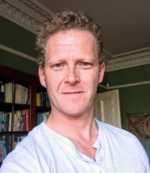 Stefan Ecks, University of Edinburgh
Stefan Ecks, University of Edinburgh
Stefan Ecks co-founded Edinburgh University’s Medical Anthropology programme and teaches social anthropology in the School of Social & Political Sciences. He conducted ethnographic fieldwork in India, Nepal, Myanmar, and the UK. Recent work explores value in global pharmaceutical markets, changing ideas of mental health in South Asia, multimorbidity, poverty, and access to health. Publications include Eating Drugs: Psychopharmaceutical Pluralism in India (New York University Press, 2013) and Living Worth: Value and Values in Global Pharmaceutical Markets (Duke University Press, 2022), as well as many journal articles on the intersections between health and economics.
 Amir Hampel, New York University Shanghai
Amir Hampel, New York University Shanghai
Amir Hampel is Clinical Assistant Professor of Global China Studies at New York University Shanghai. Amir studies how culture shapes self-evaluation, with implications for youth mental health, and how therapeutic concepts organize the way that people interpret social challenges and everyday anxieties. He has conducted ethnographic research on self-help psychology in China, focusing on social skills training programs that are popular with young urban professionals. This research analyzes identity and moral subjectivity in contemporary China, as well as the transnational flow of psychological expertise. Amir is now investigating emerging therapies that use Chinese medicine to treat children diagnosed with developmental disorders, particularly ADHD and autism.
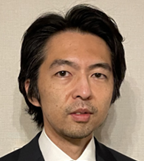 Suguru Hasuzawa, Kyushu University
Suguru Hasuzawa, Kyushu University
Hasuzawa Suguru is an Associate Professor at Kyushu University, where he provides clinical psychiatry services and supports university mental health initiatives. He holds a Ph.D. in Medicine from Kyushu University and a Ph.D. in Philosophy from Université Paris Est, where he conducted an in-depth study of Michel Foucault’s theory of psychiatry. Dr. Hasuzawa is the author of L’autre tour de folie : Michel Foucault et la psychiatrie (L’Harmattan, 2024).
 Hsuan-Ying Huang, National Yang Ming Chiao Tung University
Hsuan-Ying Huang, National Yang Ming Chiao Tung University
Hsuan-Ying Huang is currently an Associate Professor at the Department of Medical Humanities and Education and the Institute of Public Health of National Yang Ming Chiao Tung University in Taiwan. He is a medical anthropologist with prior training in psychiatry. His work in general examines mental health care and mental well-being in the context of cross-cultural transfer and rapid social-economic changes, with a focus on the development of psychotherapy and digital mental health in China. His articles have appeared in Culture, Medicine, and Psychiatry; History of Psychiatry; China Perspectives; and a number of edited volumes.
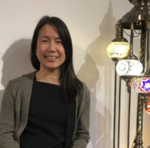 Teresa Kuan, The Chinese University of Hong Kong
Teresa Kuan, The Chinese University of Hong Kong
Teresa Kuan is Associate Professor in the Department of Anthropology at the Chinese University of Hong Kong. She is the author of Love’s Uncertainty: The Politics and Ethics of Child Rearing in Contemporary China, and co-editor of the special issue “Moral (and other) laboratories” in Culture, Medicine, and Psychiatry. Recently she wrote an entry on “Emotion and Affect” for The Cambridge Handbook for the Anthropology of Ethics.
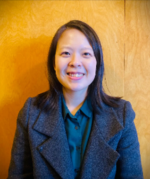 Jung Eun Kwon, University of Pittsburgh
Jung Eun Kwon, University of Pittsburgh
Jung Eun Kwon is a Ph.D. candidate in the Department of Anthropology at the University of Pittsburgh. Her research primarily focuses on women, mental health, and care within the context of South Korea. Her dissertation investigates the mental distress experienced by young women, leading to suicidal thoughts, plans, and attempts. She explores how these women practice and envision care in innovative and unexpected ways. Additionally, she analyzes South Korea’s national suicide prevention initiatives, contrasting them with the lived experiences and needs of young women.
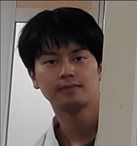 Yuto Kano, Keio University
Yuto Kano, Keio University
Yuto Kano is a Ph.D. student specializing in medical anthropology at Keio University, Tokyo. He has conducted ethnographic fieldwork on decision-making practice in community psychiatry in Japan. His doctoral research, based on fieldwork in a Japanese university hospital psychiatry department, investigates how clinical practice is conducted with people with autism spectrum disorders and how the concept of autism is translated into community via psychiatry. He has published papers in medical journals and books in Japanese.
 Neely Myers, Southern Methodist University
Neely Myers, Southern Methodist University
Neely Laurenzo Myers is a Professor in the Department of Anthropology and the Editor in Chief of Culture, Medicine and Psychiatry. She is also the Director of the Health and Society program at SMU and has an appointment as an Adjunct Professor of Psychiatry at UT-Southwestern Medical School. Her research expertise lies at the intersections of psychological and medical anthropology, and focuses on cross-cultural experiences of mental health, mental illness, and mental health care. Her research using ethnographic and mixed methods for mental health services research projects with persons from diverse and often ethnoracially minoritized groups in the United States and northern Tanzania has been nearly continuously funded by the National Institutes of Health. Her prize-winning publications include two ethnographic works, Breaking Points and Recovery’s Edge, as well as over 30 articles and book chapters related to anthropological studies of mental health and mental health care. She also runs the Mental Health Equity Lab and enjoys teaching and mentoring undergraduate and graduate students. In her free time, she loves to hike and play the violin.
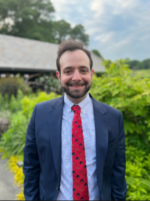 Philip J. Rosenbaum, Haverford College
Philip J. Rosenbaum, Haverford College
PHILIP J. ROSENBAUM, PHD is a clinical psychologist, Training and Supervising psychoanalyst, and the Director of Counseling and Psychological Services (CAPS) at Haverford College. He received his psychoanalytic training at the William Alanson White Institute. His interests are in studying the commonalities between contemporary interpersonal analytic practice and cultural psychology, particularly as it is connected to field theory and understanding meaning making processes as they occur in and are constituted by social and interpersonal situations. He is the co-author of the recently published book: Psychoanalytic Psychotherapy with Adolescents: College student development and treatment. He is the former editor of the Journal of College Student Psychotherapy. Additionally, he has published in Culture & Psychology; Theory & Psychology; and Contemporary Psychoanalysis. He is teaching faculty at the William Alanson White Institute and The Institute for Relational Psychoanalysis of Philadelphia. He is in private practice in Philadelphia, PA and his website is www.philiprosenbaumphd.com
 Gracie Wilson, The University of Chicago
Gracie Wilson, The University of Chicago
Gracie Wilson (she/her) is a PhD student at The University of Chicago in the Department of Comparative Human Development. Informed by medical and psychological anthropology, disability studies, and critical public health, she examines youth mental health cultures within US higher education. Gracie’s work is motivated by an interest in the medical, political, and cultural discourses individuals enlist to make sense of shifting terrains of mental health. Her current research centers college peer health advocacy programs, a growing care initiative that engages college students to advocate for healthy lifestyles, spread information about campus resources, and provide health education to their fellow students. Her work emphasizes how student, clinical, and institutional understandings of “mental health” interact, conflict, and complement one another.
■Research Assistant
 Momoko Katayama, Keio University
Momoko Katayama, Keio University
I am a master’s student in medical anthropology and a Research Assistant at Keio University, Tokyo. My research interest lies in understanding recovery processes from illness. I am currently investigating how recovery takes shape among young eating disorder patients in Japan. Drawing on patient and healthcare provider interviews, hospital fieldwork, and examination of the support network, I aim to elucidate recovery practices and their surrounding social context.
■Contact
Junko Kitanaka : junko.kitanaka@keio.jp